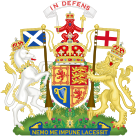| This is not a Wikipedia article: It is an individual user's work-in-progress page, and may be incomplete and/or unreliable. For guidance on developing this draft, see Wikipedia:So you made a userspace draft. Find sources: Google (books · news · scholar · free images · WP refs) · FENS · JSTOR · TWL |
| Act of the Scottish Parliament | |
 | |
| Long title | An Act of the Scottish Parliament to make provision about lobbying, including provision for establishing and maintaining a lobbying register and the publication of a code of conduct. |
|---|---|
| Citation | 2016 asp 16 |
| Introduced by | Joe FitzPatrick, Minister for Parliamentary Business |
| Territorial extent | Scotland |
| Dates | |
| Royal assent | 14 April 2016 |
| Commencement | 6 September 2017, 1 November 2017, 12th March 2018 |
| Other legislation | |
| Relates to | Transparency of Lobbying, Non-party Campaigning and Trade Union Administration Act 2014 |
Status: Current legislation | |
| History of passage through Parliament | |
| Text of statute as originally enacted | |
| Revised text of statute as amended | |
The Lobbying (Scotland) Act 2016 is an Act of the Scottish Parliament which restricts lobbying.
Definitions
editThe act defines regulated persons as Members of the Scottish Parliament (MSPs), ministers and junior ministers of the Scottish Government, special advisers of the Scottish Government and the Permanent Secretary of the Scottish Government. These people are the only regulated persons - no other civil servants are included.[1]
The main types of regulated entities are: companies, advocacy bodies and charities and representative bodies, but also unions, individuals, socities and LLPs with one independent statutory body being registered in 2021.[2]
One criteria is that lobbying has to include face-to-face communication.[3] Letters, emails and telephone calls are completely exempt.[4]
The act excludes talking to a local MSP, irrespective of whether it is a regional or constituency MSP.[1]
The Unincorporated Councils and Committees of the General Assembly of the Church of Scotland has an exemption from registering lobbying individual MSPs, who are not members of the Scottish Government.[5]
Provisions
editThe Clerk of the Scottish Parliament must maintain a "lobbying register", where meetings between regulated persons and regulated entities are recorded with details of names and addresses of the main place of business.[1]
Failure to comply with the Act can lead to a complaint to the the Commissioner for Ethical Standards in Public Life in Scotland, who must publish guidance on how such cases would be handled. The Commissioner may reports to the Scottish Parliament The Commissioner is now accountable to the Scottish Public Services Ombudsman.[1]
Penalties for non-compliance can range up to £1,000.[4]
Consequences of the Act
editIn 2020, it was reported that several instances of what could be considered "lobbying" in a colloquial sense were completely excluded by the Act.[6]
In 2024, the co-leaders were criticised as potentially falling foul of the Act for offering to meet donors for £700.[7][8]
In 2024, there were reports of several meetings between SSE and Gillian Martin, the then-eergy minister to do with a gas plant in Aberdeenshire. SSE submitted their details disclosure to the register, but the Scottish Government did not.[9]
Criticisms
editThe Act has been criticised for distinguishing "face-to-face" communication: it has been noted that whether a teleconference has video off or on can distinguish regulated or unregulated lobbying.[10]
See also
editReferences
edit- ^ a b c d Scottish Parliament. Lobbying (Scotland) Act 2016 as amended (see also enacted form), from legislation.gov.uk.
- ^ Clerk of the Scottish Parliament (12 October 2021). SCOTTISH PARLIAMENT LOBBYING REGISTER ANNUAL REPORT 2021 (Report). Scottish Parliament Corporate Body. p. 11. Archived from the original on 15 September 2024. Retrieved 15 September 2024.
- ^ "What is regulated lobbying?: Engaging with the Scottish Parliament". Law Society of Scotland. Law Society of Scotland. 19 October 2018. Retrieved 15 September 2024.
it must be an oral face-to-face communication with MSPs, Scottish Government ministers, special advisers or permanent secretaries
- ^ a b Gray, Lynne (14 March 2018). "Blog: 10 things about the Lobbying (Scotland) Act 2016". Scottish Legal News. Scottish Legal News Ltd. Retrieved 15 September 2024.
- ^ "The Lobbying (Scotland) Act 2016" (PDF). The Church of Scotland. The Church of Scotland. 2021. Retrieved 15 September 2024.
The Church of Scotland, i.e. the Councils and Committees of the General Assembly, have gained an exemption to all face to face communication with MSPs who are not Scottish Government Ministers (or a Law Officer, Special Adviser or Permanent Secretary). ... Presbyteries and congregations but the majority of their lobbying is already exempt as they have less than 10 full time employees or the lobbying is to their own constituency or region MSP (see next section for further details).
- ^ Briggs, Billy; Galli, Alice Liana; Goodwin, Karin; Mann, Jamie (16 July 2021). "Who Runs Scotland? The rich and powerful who influence SNP Government decisions". The Herald. Newsquest Media Group Ltd. Retrieved 15 September 2024.
- ^ Hunter, Ross (15 September 2024). "Greens face questions over offering meetings with MSPs for cash". The National. Newsquest Media Group Ltd. Retrieved 15 September 2024.
- ^ Rodger, Hannah (15 September 2024). "Scottish Greens MSPs offered themselves up for cosy lunches in exchange for cash". Daily Record. Scottish Daily Record and Sunday Mail Ltd. Retrieved 15 September 2024.
- ^ McLaughlin, Martyn (9 September 2024). "John Swinney accused of 'absurd' defence as ministerial code breach claims intensify". The Scotsman. National World Publishing Ltd. Retrieved 15 September 2024.
- ^ Fitzgerald, Susannah (23 November 2020). "Closing the loopholes – an opportunity to fix Scotland's lobbying register". Transparency International UK. Transparency International. Retrieved 15 September 2024.
One witness described the current register as a 'rabbit hole of loopholes.' Exemptions mean that switching your camera off on a Zoom call could mark the distinction between regulated and unregulated lobbying, regardless of the content of the conversation.
